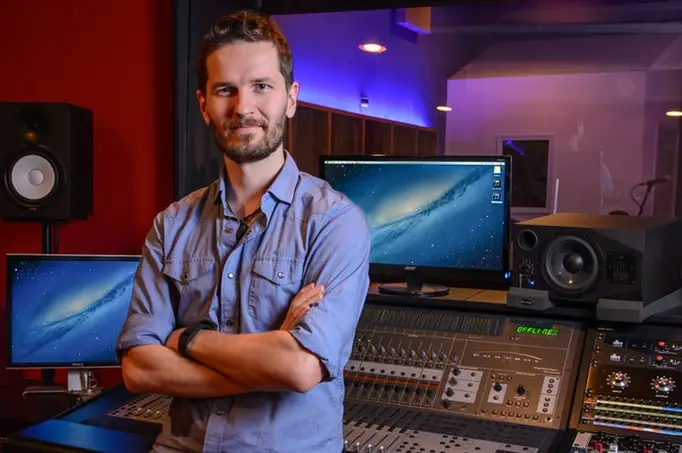Table of Contents
Introduction
Do you want to know how much do music producers make on their song? Well, music production is no walk in the park, especially for those who really sit in a studio and work for hours and hours arranging everything, overseeing the recording process, mixing and mastering the whole song or masterpiece.
Therefore, music production may cost you a lot if you are managing a project, such as a movie, a TV series and the like. However, that amount can also decrease depending on the project’s exposure, which will be explained later in the article.
How Much Do Music Producers Make Per Song?
Here’s a simple chart that can give you an idea on how much they make:
[table id=13 /]
Indie producers can produce songs, but their price per song can vary depending on different factors, which will be discussed in later sections.
Music Producer Education Requirements
If you want to work in a real studio, there are certain music production education requirements you should meet, depending on where you intend to work. Here are some of the most commonly requested degrees you should have:
- Music and Music Production
Obviously, you need to know everything there is to know about music production. Unlike before, there are now many schools and universities that offer this kind of bachelor’s degree, so you can really learn how to make music professionally. This is great especially for aspiring indie producers who want to learn how to make their own songs. Band members who have dissolved, for example, may learn how to experiment stuff on their own.
There can actually be different courses for this. For example, music production may be different from the traditional bachelor’s degree in music, which only focuses on classical instruments and if you just want to be a musical conductor, while there’s an actual course for writing your own music.
- Fine Arts
Because fine arts teach you some things about visualization and creativity, that may be needed if you want to be a composer as your career. Music producers don’t just play with gadgets in the studio – they are like painters of music. They would benefit from the lessons and techniques from the fine arts subjects.
- Sound Engineering
Sound engineering is important since you will be a producer of songs that will be heard on the radio and various other outputs. For instance, you need to learn how to mix and master tracks (two separate things) and keep the volumes in the right levels. Each instrument and vocal layer should have their own place, and you also need to be familiar with key terms in sound engineering, usually pertaining to gadgets, frequencies and the like.
- Business and Marketing
In some cases, companies may also want to request that you take up units in business or marketing. This is because copyright laws, marketing strategies and the like are quite important when it comes down to making music, especially if you work on a company that’s still growing and/or is well-known. Producers need to know how to deal with copyright laws, artist royalties and the like.
Factors on How Much Do Music Producers Make Per Song
There are many different factors by which a music producer can have a different pricing for each song that they produce:
- Level of experience
This translates to the number of clients you’ve had in the past. For new producers, this can be very overwhelming, since they may not know how to price clients. Some have terrible experiences of being scammed by the client and not paying them, which is very hard. However, as your experience arises, you may be able to charge clients much more than you used to do since you’ve probably upgraded your studio or have a better idea on the price range of your job.
- Freelancer vs. employee
Usually, freelancers don’t get a lot of cash as compared to regular employees in a studio. However, this can still depend on different factors. For example, employees could have a large salary, but if the recording company isn’t very nice, they may actually get underpaid for their studio work. Freelancers, on the other hand, don’t have to worry about cuts from middlemen and managerial staff – they make prices based on their own terms. If you’re a well-known freelancer, you can actually earn more than the average studio employee.
- Studio setup
Large studios can cost a lot, so if you work in one, there’s a chance that it may affect your current salary or project payout. Freelancers, for example, may have the right to charge clients better if they have a professional studio versus one who has a small bedroom studio. Employees who work in bigger companies may also enjoy better bonuses as compared to startup recording companies or labels.
- Educational background
Some companies and labels don’t really require you to have a specific bachelor’s degree in anything, although some could require you to do so. They may also give you a salary that depends on what degree you are holding, so if you want to be able to increase your salary, you could get a degree, much like how teachers and other professionals take master’s degrees in their career field.
- Local/national average cost of living
Let’s face it – not all countries in the world are fair when it comes down to music and arts pricing. For example, countries in Southeast Asia and Africa may not really be the same with Europe and America when it comes down to outsourcing indie producers or let alone just buying albums or any form of art. Because music and art are both luxuries, people who live in countries with low GDP may not really have the opportunity to pay you as much as American or European clients would.
The cost of living can also apply to where you live in a country. For example, if you live in a city or metropolitan district, the cost of living, such as rent, food and transportation, can affect your daily lifestyle, which can cause some changes to your salary or project payout.
So How Do Music Producers Make Money?
Producers can generally make money through the following options:
- Writing and producing a song
Each time a producer makes a song, he or she is given a certain payout depending on the factors mentioned above. Making a song takes a lot of effort and knowledge so it’s obvious that they should get paid enough for this.
- Mixing and/or mastering a song
Just mixing or mastering a song is actually hard to do, because you need to be knowledgeable with sound engineering and know how to work with hardware, frequencies, and mixing theory as well.
- Remixing or arranging a song
Whether you’re indie or working on a mainstream company, remixing songs from stems/MIDI files or simply making a song arrangement is also tough to work. Some of the best solo artists started out as remix artists of a certain mainstream artist (especially EDM producers) so it may also launch you to fame someday.
- Making beats, loops, and packs for sale
You can also make money if you produce your own music packs, which can be bought by other artists or producers. Got a drum set at home? Record some loops and sell them!
- Royalties from album/single sales, TV, radio plays
Artist royalties have always been traditionally coming from these media (usually per song played), but these often only work for mainstream producers. Indies can also get some from their single/album releases, whether it’s physical or digital.
- Royalties from online music platforms
Nowadays, you can also get royalties from Spotify and other music platforms depending on their terms. If you distribute through TuneCore, CDBaby or Distorkid, they will automatically distribute the royalties to your account on your terms.
- Cover/remix licensing for other artists
If other artists pay you licensing fees to allow them to legally remix or cover your song, that is also an added extra income for you. This works especially if your song became a smash hit!
How Do Music Producers Make Beats
Generally, here are the usual ways on how music producers make beats:
- Piano or keyboard
- Live drums or percussion
- Drum pads
- Electronic drums
- Anything percussive around the house
- VSTs from DAWs (synthesized drum sounds from scratch)
Factors on How Do Music Producers Make Beats
There are many factors that you can consider when making beats as a music producer:
- The right gear
For instance, you may need to have a great instrument or gear in order to make awesome beats. Here’s an article that we’ve done earlier to show you the best keyboard for making beats.
- Musical ideas
You also need to have some musical ideas, theories and the like. Try listening to many genres and get some ideas on making beats that people will most likely use for their music production.

